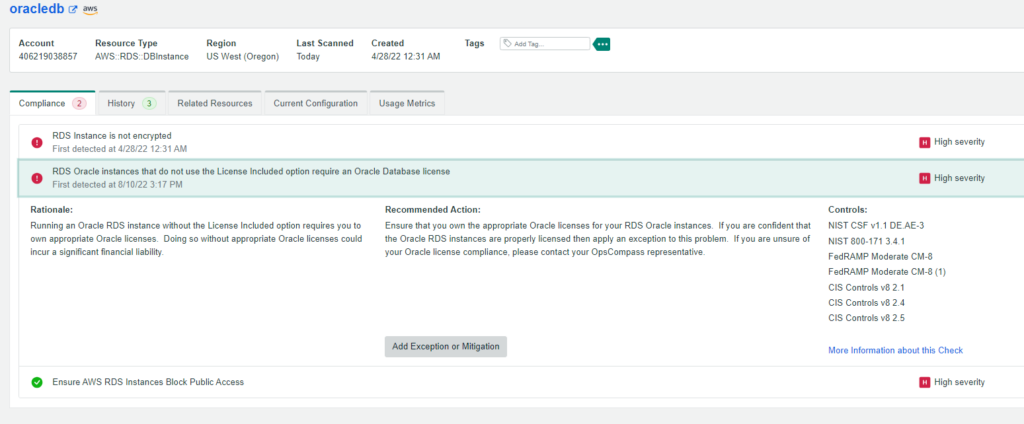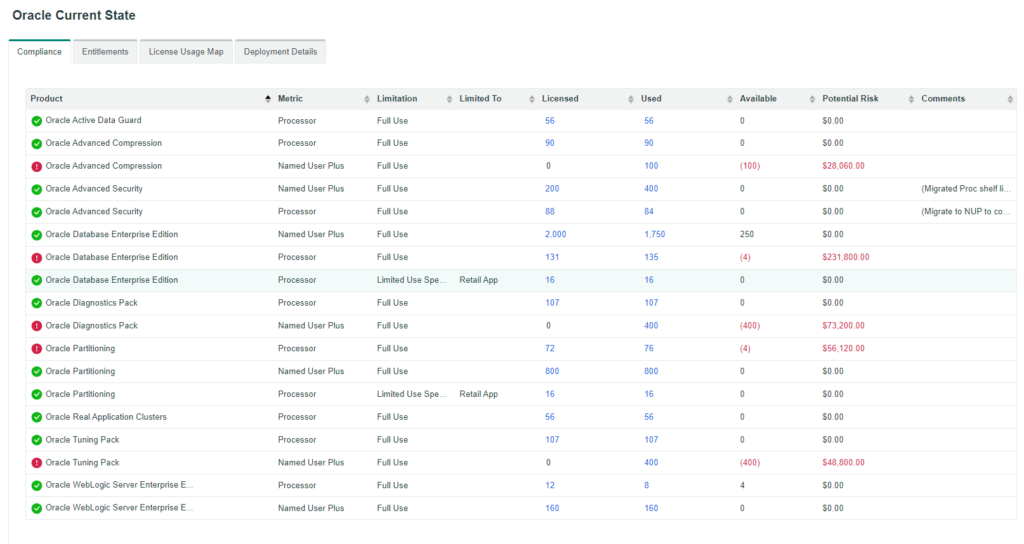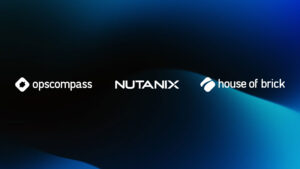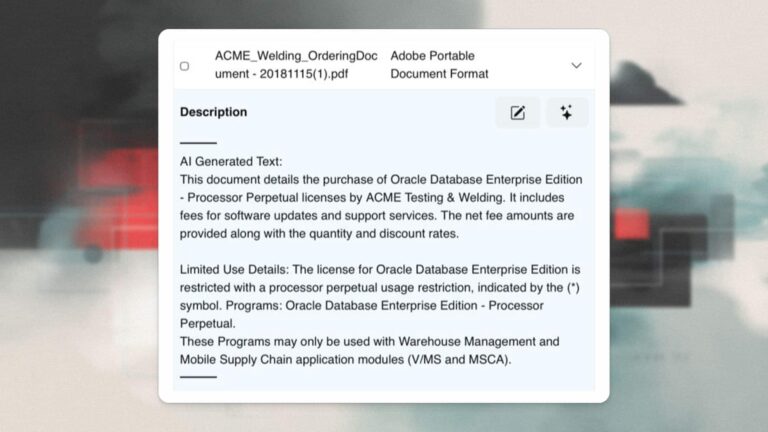The biggest risk our clients face related to Oracle licensing is the risk of unknowingly using database features. With Oracle, these features all require a license for their use. DBAs will frequently use database features without paying attention to the licensing impact. This use can spread quickly in a public cloud where the deployment of resources is just a few clicks away.
Oracle Enterprise Edition databases offer an array of options and management packs. When deploying on Amazon Web Services (AWS), managing the use of these features becomes critical due to the licensing implications. Oracle’s meticulous internal accounting monitors the use of each product feature, and understanding this is fundamental in protecting yourself in the event of a license audit from Oracle and ultimately reducing your Oracle TCO over time.
Given the flexible capacity of AWS and ease at which features and options can be enabled on cloud services like AWS Relational Database Service (RDS), there’s a risk of inadvertently activating Oracle features that lead to unexpected licensing costs.
Disabling Oracle Features
With the flexibility of AWS infrastructure, and the complexity of a cloud migration, it’s easy to unintentionally utilize certain Oracle features. For example, if you’re not licensed for Diagnostics Pack or Tuning Pack, you can disable them using the CONTROL_MANAGEMENT_PACK_ACCESS parameter:
SQL Code
ALTER SYSTEM SET control_management_pack_access=NONE scope=both;
Disabling unlicensed and even unneeded features is key to mitigating your license risk. Remember, when using RDS for Oracle in AWS, certain parameters might have restrictions. Always consult AWS documentation when making changes.
Other Oracle database features cannot be disabled. Oracle conveniently leaves all database features unlocked and available for use without any type of license key. Partitioning, for example, is available to use simply by issuing the SQL command to partition an object. The moment a database object is partitioned, a licensing liability is incurred. The Partitioning option carries a retail price of $11,500 per processor license, as referenced by the Oracle Technology Price List.
Oracle Licensing in AWS
Before diving into feature management, it’s important to understand Oracle licensing in the AWS environment. AWS allows you to bring your own license (BYOL) or use license-included instances, depending on the Oracle product. Licensing Oracle on AWS is based on the number of vCPUs used. Oracle counts two vCPUs as equivalent to one Oracle Processor license if hyper-threading is not enabled. Ensure you are well aware of the terms before deploying Oracle databases in AWS.To get more of a deep dive into Oracle licensing on AWS, you can check out this blog that touches on all the editions, metrics, and the cloud policy you’ll want to understand before you migrate.
Monitoring Oracle Feature Usage
Monitoring feature usage starts with knowing what you have and what you’re using. In AWS it’s important that you can identify instances of Oracle that are subject to your license entitlement. For instance, it is dangerous to be unaware of an Oracle for RDS instance running in bring-your-own-license mode. This is because in a BYOL mode users are expected to have adequate licenses for all the Oracle features they utilize. We use OpsCompass to detect RDS instances that are running Oracle in BYOL mode so that we can ensure it is managed and setup for feature monitoring.

With OpsCompass, every Oracle database you have in AWS, whether hosted on an RDS or EC2 instance, you’ll know what features you’re using relative to what entitlements you own. In the database below, I can see the features I’m using that I’m not licensed for. But more importantly, I can see how much it’s going to cost me to come into compliance based on my Oracle entitlement.

Conclusion
Mastering the complexities of Oracle’s licensing is pivotal to an AWS migration. The agility that AWS enables can sometimes lead to unintended usage of licensable Oracle features. Proactively managing feature usage and mitigating license audit risks are a cornerstone to achieving success running Oracle database workloads in AWS. At House of Brick, we’ve saved customers billions of dollars in claims across hundreds of audits using OpsCompass for Oracle and our deep expertise in Oracle and AWS and we can help you too.






